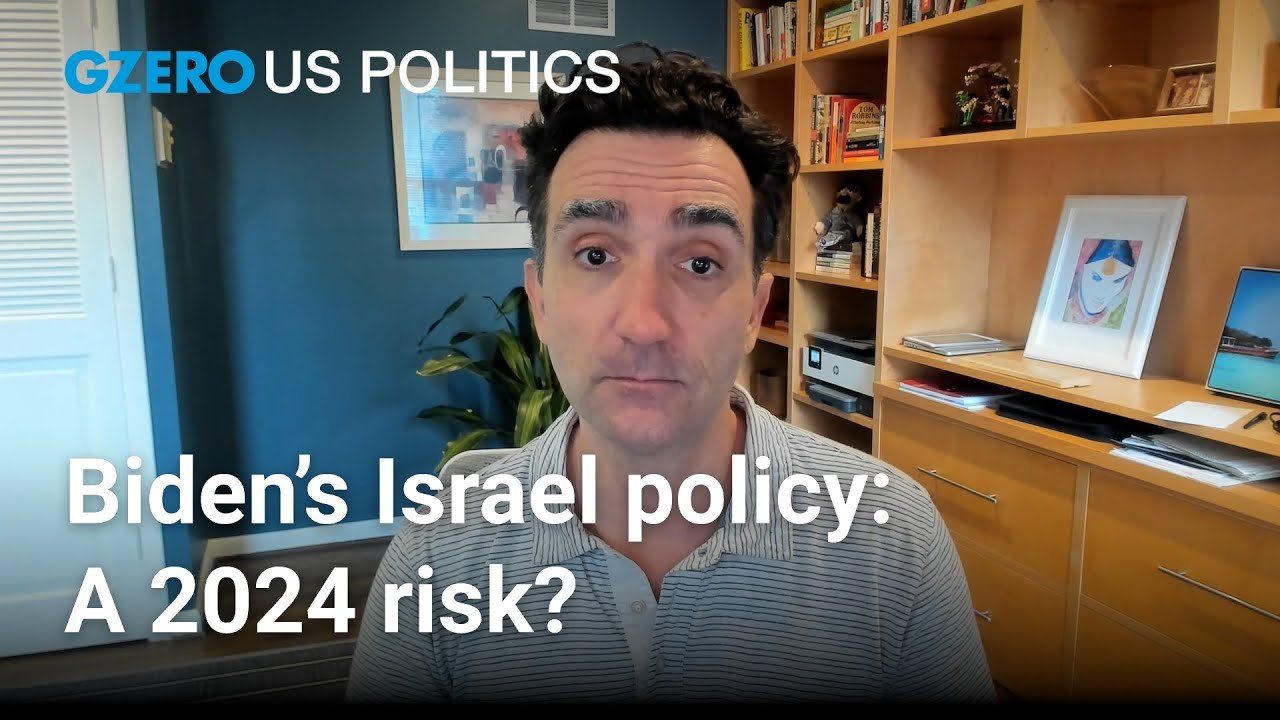US Politics In 60 Seconds
Is Biden's embrace of Israel a political liability for him?

Is Biden's embrace of Israel a political liability for him? | US Politics In :60 | GZERO Media

Jon Lieber, head of Eurasia Group's coverage of political and policy developments in Washington, DC, shares his perspective on US politics.
Is Biden's embrace of Israel a political liability for him in the US?
President Biden this week gave a forceful speech from the Oval Office following up on a strong condemnation of the Hamas attacks on Israel two weeks ago. He's requested $106 billion in aid between Israel, the US southern border and Ukraine, and has made a forceful defense of the need for the US to spend money to protect democracies.
This is a bit of a risk for him, however, because, within the Democratic coalition, there are wide range of views on Biden's policies toward Israel. A CNN poll from earlier this week found that only 27% of younger voters found that Israel's military response to the Hamas attack was fully justified, in contrast to 81% of older voters. And younger voters are a key part of the Democratic coalition, and for President Biden represents a risk in next year's election because they could defect from him in key swing states and move to the independent third-party bid of Professor Cornel West, who has been far more critical of Israel throughout the course of his public life.
Overall, Biden is doing okay on the question of Israel. 42% of people in a Quinnipiac poll approve of his response to the Hamas attacks, and a similar number approve of his policy towards Israel overall. This is more people approve than disapprove, which is a sharp contrast to the -18 points approval rating that he has overall. So while Biden remains relatively unpopular, his foreign policy is doing okay. However, going into 2024, there's a key risk here. One, we have the risk of younger voters bolting, but two, a broader conflict in the Middle East, where the US is seen as supporting an Israeli ground occupation of Gaza or a regional conflict that leads to barrels of oil being taken off the market, could result in higher prices for US consumers and a worsening economic outlook that would significantly degrade Biden's chances of being reelected in 2024.
So the Middle East crisis is contained for now, is somewhat of an asset for President Biden. But his close embrace of Israel and the possibility of a broader expansion are both key risk points to watch in the 2024 election.
Thanks for watching. I'm Jon Lieber. This has been US Politics (in a little over) 60 Seconds.
Mastercard Economic Institute's Outlook 2026 explores the forces redefining global business. Tariffs, technology, and transformation define an adaptive economy for the year ahead. Expect moderate growth amid easing inflation, evolving fiscal policies, and rapid AI adoption, driving productivity. Digital transformation for SMEs and shifts in trade and consumer behavior will shape strategies worldwide. Stay ahead with insights to help navigate complexity and seize emerging opportunities. Learn more here.
Despite a ceasefire in Gaza, Israel is still not letting foreign journalists in to independently verify what’s happening on the ground, CNN’s Clarissa Ward tells Ian Bremmer on GZERO World.
On Ask Ian, Ian Bremmer breaks down the steady escalation of US pressure on Venezuela and why direct military action is now a real possibility.
From civil conflicts to trade wars to the rise of new technologies, GZERO runs through the stories that have shaped this year in geopolitics.